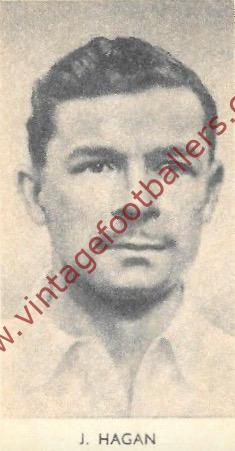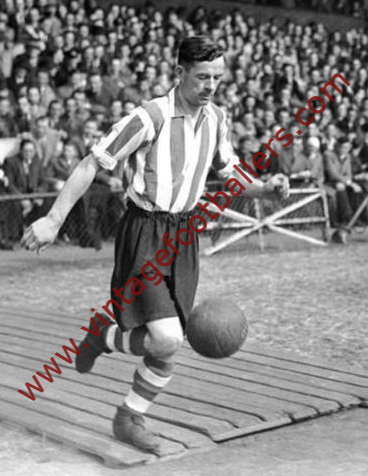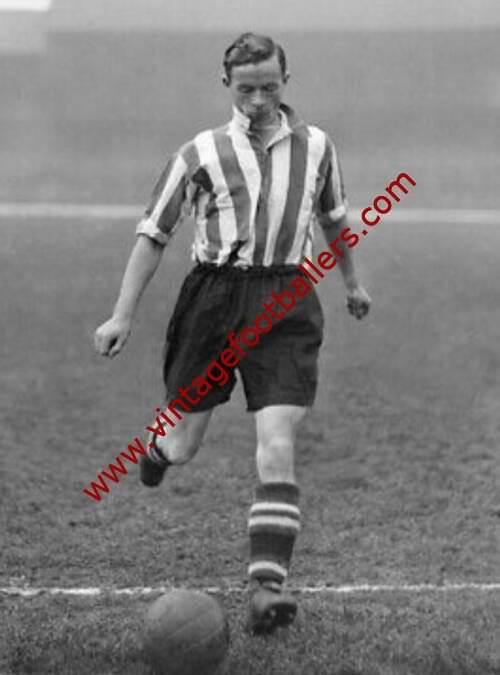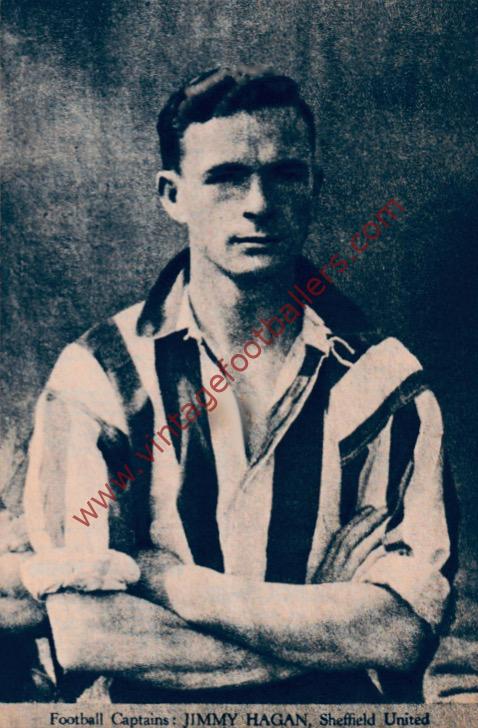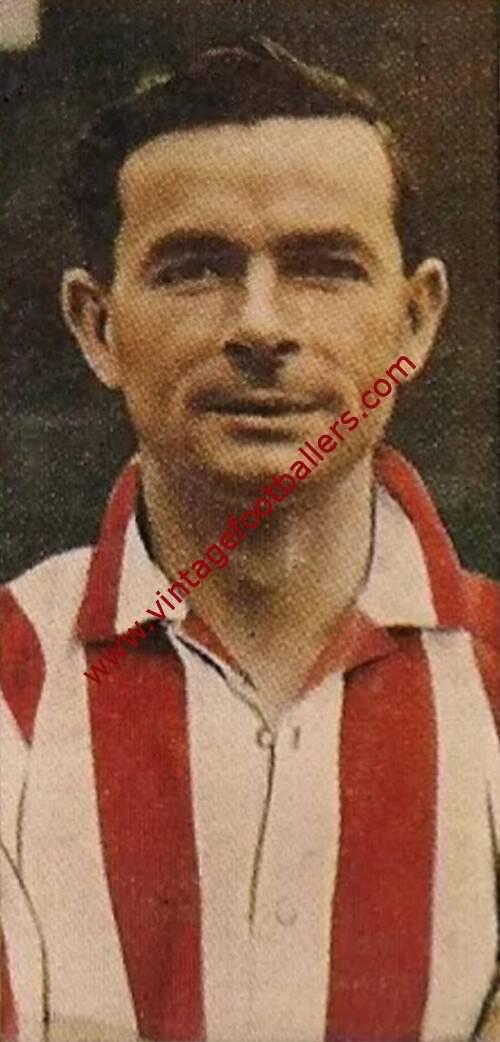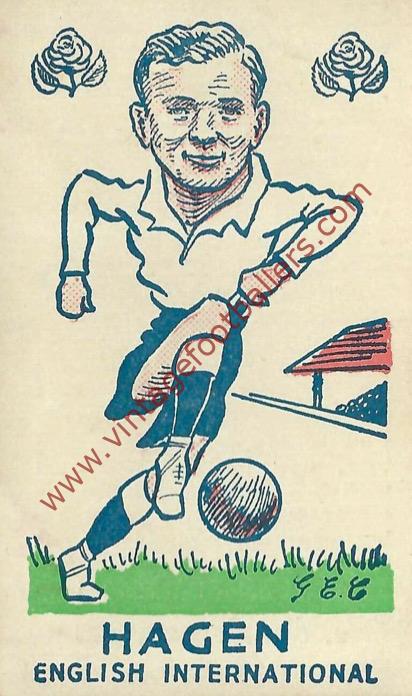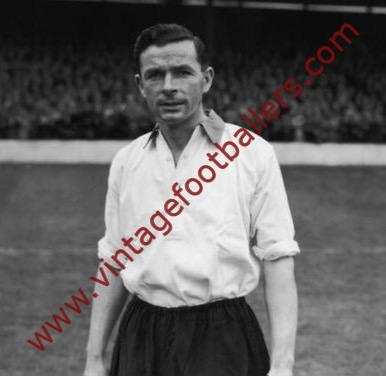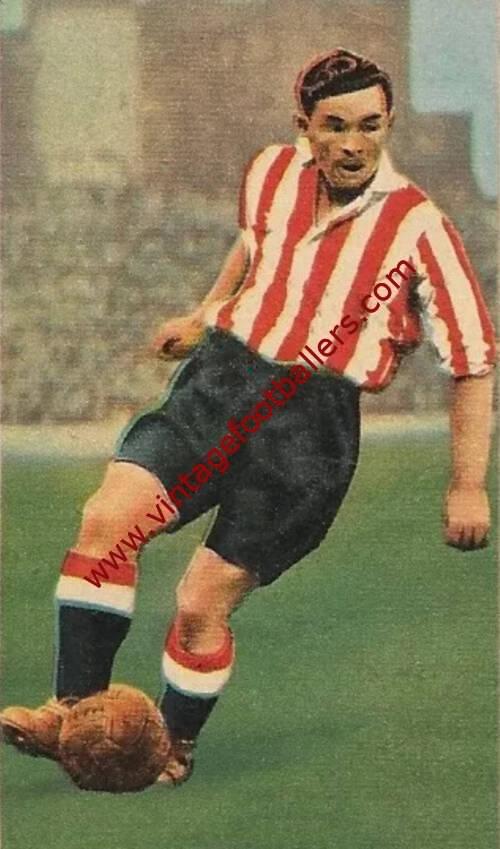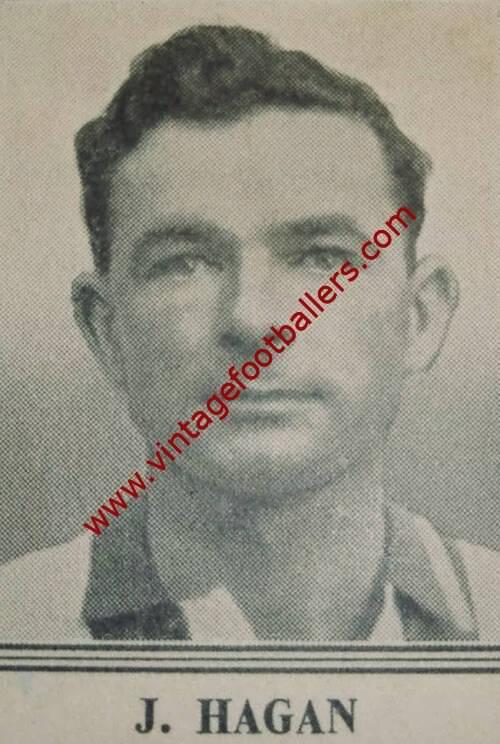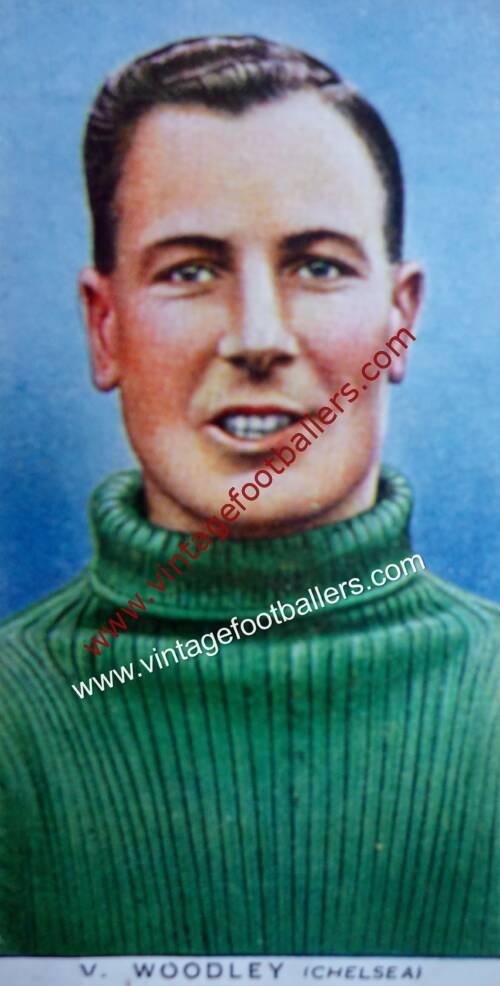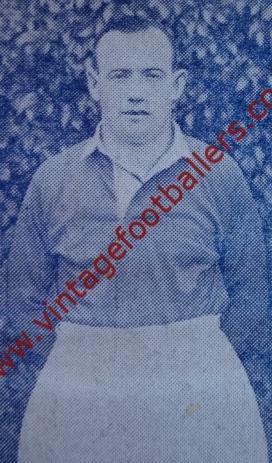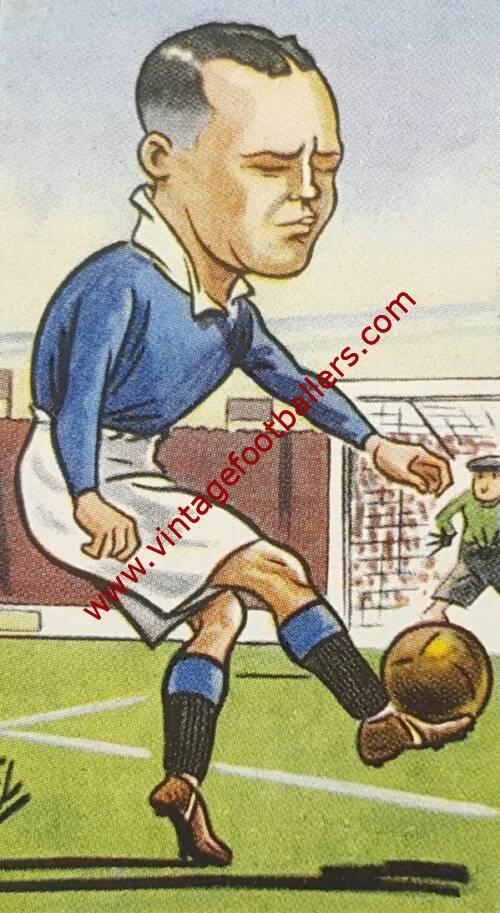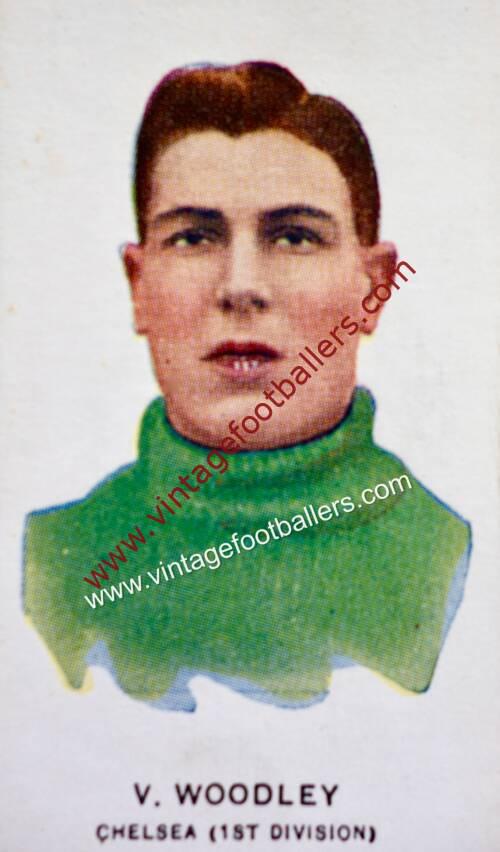Please choose your photo size from the drop down menu below.
If you wish your photo to be framed please select Yes.
Note: 16″x 20″not available in a frame.
Images can also be added to accessories. To order please follow these links
£8.95 – £49.95
Please choose your photo size from the drop down menu below.
If you wish your photo to be framed please select Yes.
Note: 16″x 20″not available in a frame.
Images can also be added to accessories. To order please follow these links
Washington, County Durham born inside right Jimmy Hagan followed in the footsteps of his father, Alf, a former Newcastle United, Cardiff City and Tranmere player, to become a footballer, starting with junior clubs Washington Colliery and Usworth Colliery in 1933. Hagan represented England at schoolboy level and joined the ground staff of Liverpool later in 1933 at fifteen years of age before leaving for Derby County in January 1935, making his Football League debut in December the same year against Everton. He stayed at the Baseball Ground until November 1938 when Sheffield United’s manager Teddy Davison met his Derby counterpart George Jobey and haggled over the £3,000 asking price, eventually agreeing to pay £2,925 after 7 goals in 31 appearances.
With a weekly wage of £7 per week plus a first-team appearance fee of £1, Hagan made his Blades debut two days later on 5th November 1938 in a 2-1 victory against Swansea Town in the Second Division. His first goal came 21 days later at Bramall Lane in a 3-1 victory over West Ham United. His first hat-trick for the club came in the last game of the 1938-39 season, with United needing to win to gain promotion instead of local rivals Sheffield Wednesday who having played all their 42 games were one point ahead on 53 with a superior goal average. Promotion was secured with a 6-1 win, Hagan contributing a goal.
After the War, Hagan initially refused to re-sign for United, missing the first four games of the 1946-47 season. Having got a job as a trainee chartered surveyor he only rejoined the team on a part-time basis, and in due course became club captain. A two-footed inside forward with an astonishing repertoire of tricks, Hagan was also a regular goalscorer and he was selected for his only England cap in September 1948 in a 0-0 draw against Denmark in Copenhagen, having played the previous year in an unofficial England “B” international against Switzerland in Geneva. He also toured Australia with the FA party in 1951.
After United were relegated in 1949, he won the Second Division Championship with them in 1953 scoring 17 goals during the campaign. He continued to play for United until 1958, as captain between 1946 and 1949, despite United accepting what would have been a British record transfer fee of £32,500 from Wednesday in February 1951. Hagan rejected the transfer and Wednesday were relegated to the Second Division.
He finally retired after playing against his former club, Derby County, on 14th September 1957, having scored 123 goals in 392 appearances. His testimonial game was played on 10th March 1958 between a Sheffield XI and an International XI. He remains a legend amongst Sheffield United fans for his performances during nearly 20 years service at Bramall Lane. In May and June 1958, Hagan joined fifteen Blackpool players on a tour of Australia. He scored 21 goals in his fifteen appearances.
Hagan started his managerial career with Peterborough United where he worked between April 1958 and October 1962. His period in charge saw Peterborough United promoted to the Football League for the first time, and, in 1960-61, their first season in the League, they won the Fourth Division Championship, scoring 134 goals. This remains a record number of goals scored in the English leagues. After leaving Peterborough, he joined West Bromwich Albion in April 1963 leading the team to the Football League Cup in 1966. Sliding fortunes in the season thereafter put an end to this assignment in May 1967. From 1970 to 1982 he managed a number of Portuguese teams including Benfica, Sporting Lisbon, Boavista, Vitoria Setubal and Belenenses.
| Weight | N/A |
|---|
